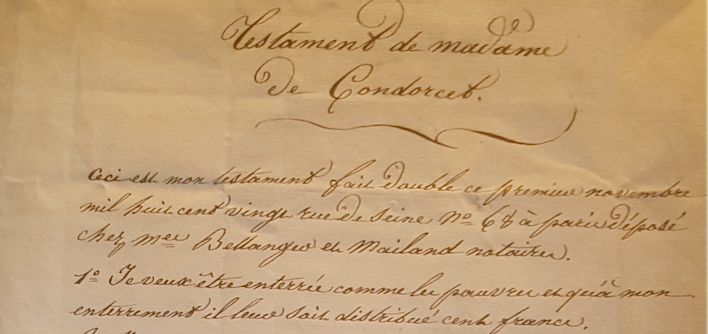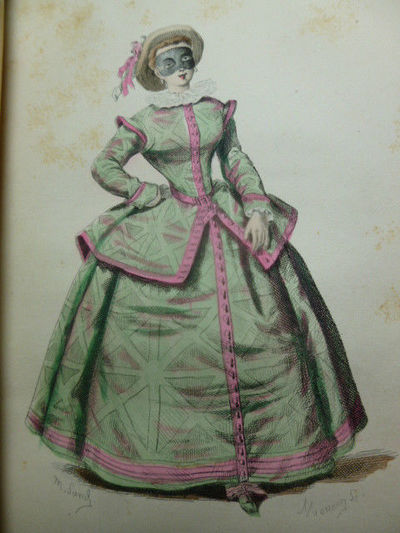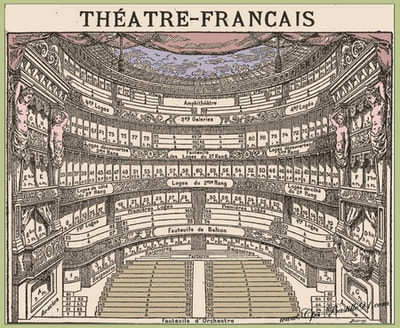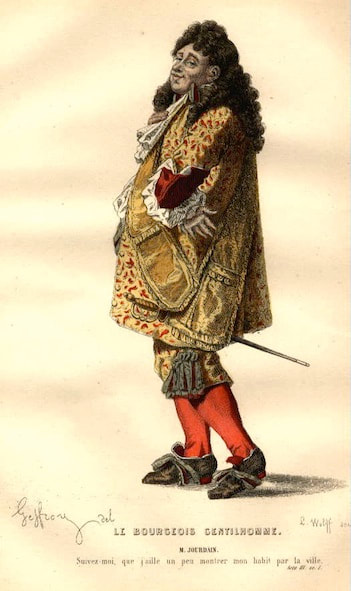|
Paine remarked that the life of the French peasant before the revolution was nothing short of abject, and put paid to the Hobbesian theory that humans were always better off in the civil state than they would be in the state of nature. The revolution was, at least in principle, meant to redress some the most extreme instances of inequality. But the leaders of the revolution are often accused of not really having the best interest of the poor in mind. How would they know what the lives of the poor were like? What did an aristocrat like Sophie de Grouchy really know or care about the poor of France? As a child, with her mother, she visited them - an important part of her education was charitable visits. In her Letters on Sympathy, she thanks her mother for showing her the true value of such hands on charity: Yes, seeing your hands relieve both misery and illness, and the suffering eyes of the unfortunate turning to you, softening as they blessed you, I felt my heart become whole, and the true good of social life was made clear to me, and appeared to me in the happiness of loving and serving humanity There's something perhaps a bit distasteful about the very rich dispensing weekly, or even daily graces on the poor, when they could so easily relive most of their sufferings by relinquishing half their luxuries. Or perhaps this is politically or historically naive. In her Letters on Sympathy, Grouchy theorized her attitude to charity. Hands on charity is good, she says, not just because it relieves suffering, but because it teaches sympathy. Sympathy in turns becomes morality, and justice, and the desire to reform laws and social institutions so that extreme inequalities no longer exist. She does not want to erradicate all inequalities - some that are down to chance, or temperament, will survive. But there is enough good land in France, she says, to ensure that no-one be poor, even if three quarters of it goes to the rich, and the last quarter is divided amongst the common people. Photo of a copy of Sophie de Grouchy's will, held at the Bilbliothèque de l'Institut, courtesy of Millicent Churcher. Sophie saw her ties with the poor through to the end of her life. In her will she asked that instead of being buried at great expense in the family vault, she asked to be buried as a pauper, and that the money saved be distributed to the poor.
0 Comments
Some male French historians, it seems, still are not very comfortable with the idea that a number of women played a significant role in history. Olivier Blanc, who wrote an excellent biography of Olympe de Gouges is not one of them. And perhaps it is that my sample is small, and it is definitely old. For the bicentenary of the 14th July, Pleiade came up with a small illustrated volume about the writers of the Revolution. The editor of the volume, the essayist Pierre Gascar (1916-1997), managed a very respectable selection of male writers, and wrote about the with the reverence they deserved. One gets the feeling that even the most psychopathic amongst them have to be treated fairly - after all, they played a role in the revolution that shaped the French nation we know and love. What he did not do, however, was waste much time on the women writers of the period. Except for one, who is mentioned on nine (four of which are pictures) occasions, with one fairly long section in which her name recurs, and the others passing comments. That was Olympe de Gouges. In two of the passing comments, Gascar uses the adjective 'ardante' to describe her. That is, Olympe de Gouges, was 'fervent' or 'passionate'. She was also, driven to a near 'delirium' by her attempt to assert herself in the political scene. She was, Gascar tells us, led in all things by the desire to succeed, and the need for glory. But because she was a woman, he concludes, she presented a 'disarming' picture of the thirst for fame. Her writings did not reflect her judgments, but rather her sentiments. Her objection to putting the king to death was not based on any belief that this could harm the revolution, or that it would be morally wrong, but on disgust. Lucky for her, she is not the only woman philosopher of the revolution to have been portrayed as a passionate figure driven by ambition but incapable of judgment. In 1927, Jean Martin, writing about this all but forgotten (because largely insignificant) member of the Girondins, Achille Duchatellet, describes Sophie de Grouchy as a 'fiery head'. He derives this description from one by her friend Dumont, who wrote about Sophie that she had : A serious character, a mind that flourished on philosophical meditations, republican readings, and a passion for Rousseau's works had inflamed her head. Describing a letter Sophie wrote to Dumont about the state of French politics after the massacre of the Champs de Mars, Martin alerts to the overflowing feminity of the letter, and the instances of 'coquetry' that fill in the spaces between the writers' attempt to engage with the political thought of her time. But, Martin notes generously, she does make a sensible point in passing, about governments in general presenting an obstacle to enlightenment. The rest of her descriptions, however, only serve to 'stir her nerves' because she dreams of a moving persecution of which she would be the heroine. Her thoughts on the subject of how to educate a reasonable woman are the occasion for Martin to show us that Sophie is vain - she must be the reasonable woman in question. She is also, he notes, being ridiculously unfair to Dumont, when she notes that it will be a while before men treat women as reasonable being ('Not all men!). This, is the sort of drivel that we have to wade through in order to study the history of women philosophers. It is a research project all by itself, and I suppose as such interesting. But it leaves a very unpleasant taste. At the end of a treatise in which she takes on Rousseau's analysis of human progress, Olympe de Gouges makes the following proposal: a second French theatre, or The National Theatre. A great number of well-born women are ruined because men, who have seized everything for themselves have prevented women to elevate themselves, and to obtain for themselves useful and lasting resources. Why should my sex not one day be rescued from this thoughtlessness to which their lack of emulation exposes them? Women have always written. They have been allowed to contend with men in the theatrical profession. But they would need proof of greater encouragement. Such is my plan: She goes on to describe an institution that would take in children from respectable but poor families, educate them in the arts and train them as actors, but always with a view to their respectability. After a few years, these children would constitute a troop of actors and would be offered the opportunity to produce plays. Those that chose not to, could pursue any other career in the arts. But as many of the fashionable plays of the times were not, to Olympe's mind, respectable, she would enlist the help of writers who are not given to scurrulous plots, and whose works are not usually performed, i.e. women. She says she herself has 32 plays ready to go, and that many other women have penned good plays.
Thus Olympe aims to kill two birds with one stone: Give women playwrights the chance to work, and reform the arts by providing a national artistic education so that would be artists do not resort to demeaning themselves in order to pursue their arts. |
About
This is where I live blog about my new book project, an intellectual biography of three French Revolutionary women philosophers. Categories
All
Archives
November 2022
|




 RSS Feed
RSS Feed